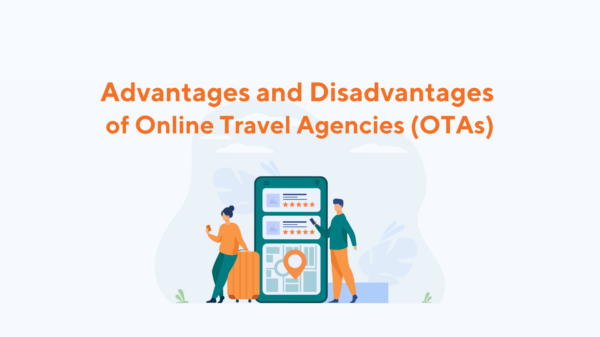
Sustainability is a journey with many steps along the way. To make your tour company truly sustainable, change needs to come at all levels. Evaluating your company’s core values can help.
That doesn’t mean there aren’t concrete steps you can take now. Here are seven areas where any tour provider can make a difference, along with a few suggestions of how to help.
1. Support the local economy.
Sustainability isn’t just about the natural environment — it’s about our homes, our communities, and our cultures. For a business to have a sustainable future, it needs a local economy in which to thrive.
Share your success. Partner with restaurants to offer combined discounts, include local businesses in your tours, and introduce your guests to the other wonders of your region. Make sure to focus on locally-owned businesses for maximum impact.
Work with local artisans. If you sell physical goods, don’t import them — get them hand-made locally. Guests can buy low-cost souvenirs anywhere, but handcrafted items are much more prized.
Care for your business’s future. Any successful, locally-owned business is a boon for the local economy, and yours is no exception. By protecting your business’s future, you’re helping protect your community, too.
2. Help end poverty and unemployment.
The more people we can raise out of poverty, the more people contribute to a better future for all of us. A community where everyone has a place to live and a place to work is a healthy, sustainable community.
Work with organizations helping marginalized individuals find work. Stigma keeps many qualified, hard-working people from finding employment. People with disabilities, who are dealing with homelessness, who’ve been convicted of crimes, or who are members of certain marginalized communities are often eager to find work, but struggle with public perceptions. Consider hiring through organizations dedicated to helping them seek employment.
Create jobs locally. Outsourcing some positions can be a cost-saving measure, but it can also mean supporting dangerous, unsustainable employment practices.
3. Improve your company’s efficiency.
The more we reuse and the less we waste, the more we save — both of our planet, and from our budgets.
Reduce waste. Zero waste programs can be a challenge to set up, but many companies find them quite beneficial, both to the local environment and to their bottom lines.
Use renewable energy. Not only do non-renewable energy sources tend to be worse for the environment, they’re also increasingly expensive. Renewables like wind and solar are becoming cheaper, and they have a much lower environmental impact.
Go paperless. Moving to online booking systems and other computer-based systems can prevent waste while making your job easier. Whenever you can do without printed records, you decrease your environmental impact.
Avoid disposable plastics. Plastics are destroying the ocean, and with it, a lot of tourism opportunities. By avoiding plastics whenever possible, we can stop contributing to the damage they cause.
4. Champion the local environment.
Chances are, if you run tours or activities in an area, you already prefer your guests leave it in good shape. There’s more we can do than discouraging littering, though.
Educate guests about vulnerable ecosystems. There are plenty of places tours can’t (or shouldn’t) go because they’ll disrupt protected spaces or species. Each is an opportunity to educate guests about the sensitive ecosystems all around them.
Avoid harmful products. Sometimes, popular souvenirs harm the local environment or endangered species. Educating guests about that harm can both help prevent it, and save them embarrassment down the road..
Incentivize greener transportation. Encourage guests and employees to carpool or take local public transit.
Develop sustainable tours or activities. Large groups can have a negative impact on natural environments. Long-distance travel can be bad for emissions. Consider these factors when developing your products.
5. Celebrate cultural heritage.
Tourists are already desperate for authentic experiences, so why not use the chance to introduce them to real cultural heritage? Keeping unique cultures alive is an important part of sustainable living.
Include unusual historical sites in your tours. Not every historical site makes its way onto travel blogs. You can drive bookings while preserving local history by telling the stories of lesser-known historical locales.
Work with local or indigenous guides. There’s nothing more authentic than someone’s lived experience, so tap into that if you can.
Encourage cultural exchange. Help your staff share local flavor, historical information and culture. Educate your guests about the cultures and traditions they encounter so they can be respectful.
6. Conserve water.
Clean water is absolutely vital to a sustainable future. If you’re fortunate enough to live in a region where it’s plentiful, it’s still worth consideration.
Protect waterways. Discourage guests from any behavior that might contaminate sources of clean water. Take care not to leak oil or other chemicals into the water if you travel on it.
Be conscious of water use. If your business is in an area with lots of access to clean water, tightly controlling usage may be unnecessary. Even so, being wasteful is never a great idea. Otherwise, educate your guests on water restrictions — whether or not they’re required to respect them. Some will choose to do so either way, and they’ll feel good about the opportunity to help.
7. Invest in others.
The most sustainable way to celebrate financial success is to invest some of it in your community, or in places where it can do the most good.
Support local initiatives. Whether it means sponsoring programs, offering funding, or getting involved directly, supporting community initiatives makes your immediate world a better place.
Spend where it has the most impact. If you’re investing outside the community, consider microloan systems or other crowdfunding systems that directly support people doing work you believe in. If you support charity, make sure the majority of the money goes to the cause.
Lobby for change. If your business has clout, locally or otherwise, you may be able to affect change by supporting political causes that matter to you.
Work with sustainable businesses. When considering vendors or providers, take their contribution to the community or the world as a factor in your decisions.





